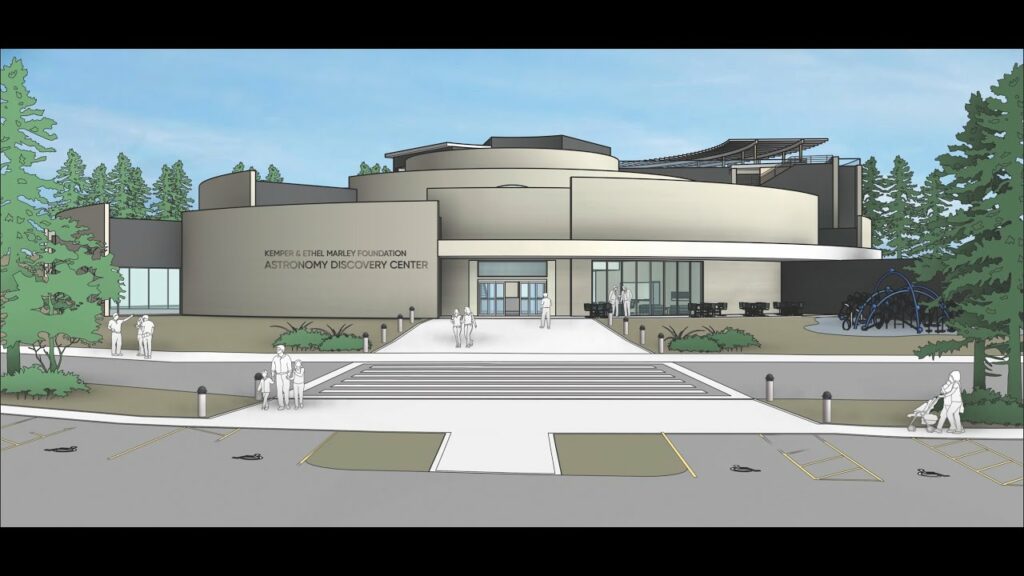Discovering the Universe: Science Communication and Education at Lowell Observatory
By Juan A. Ruiz
High in elevation in Northern Arizona, nestled amongst a backdrop of mountains and sky, lies Lowell Observatory—a place where imagination fuels the journey of discovery. Founded in 1894 by Percival Lowell, a man whose vision was as vast as the cosmos, this observatory has become a sanctuary for those driven by the relentless quest to understand the universe.
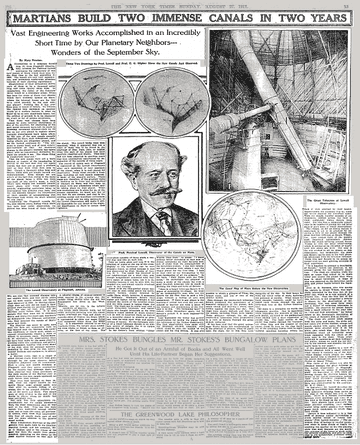
Blanketed by starry Flagstaff skies, Lowell Observatory is a living example of the imagination’s ability to advance science. It has become a beacon of knowledge, engaging learners and explorers of all ages in the journey of astronomical discovery. Lowell Observatory inspires and educates people of all ages and backgrounds, emphasizing community engagement, educational initiatives, and ground-breaking astronomy and planetary science research, inviting visitors to deepen their understanding and passion for space exploration.
Few institutions worldwide can proudly claim that their inception was fueled by the intention of proving the existence of extraterrestrial life. Lowell Observatory is one of those places, as its beginnings are deeply rooted in the visionary (though perhaps questionable) ideas of its founder, Percival Lowell.
Inspired by the work of previous astronomers, Lowell was entranced with the allure of the Red Planet. He was convinced that Mars held evidence of an advanced civilization, leading him to undertake extensive observations of the planet, which led to elaborate drawings and maps of the Martian surface. He would detail ‘non-natural features,’ including his description of the series of canals built by intelligent life forms. Percival studied Mars extensively and published three books detailing his ideas and beliefs that would captivate readers and inspire generations, including the author of The War of the Worlds’ HG Wells and many others. Kindling this belief of life being a common feature in the vast expanse of the universe led to the emergence of alien science fiction and stoked the notion that life could exist elsewhere in the universe.
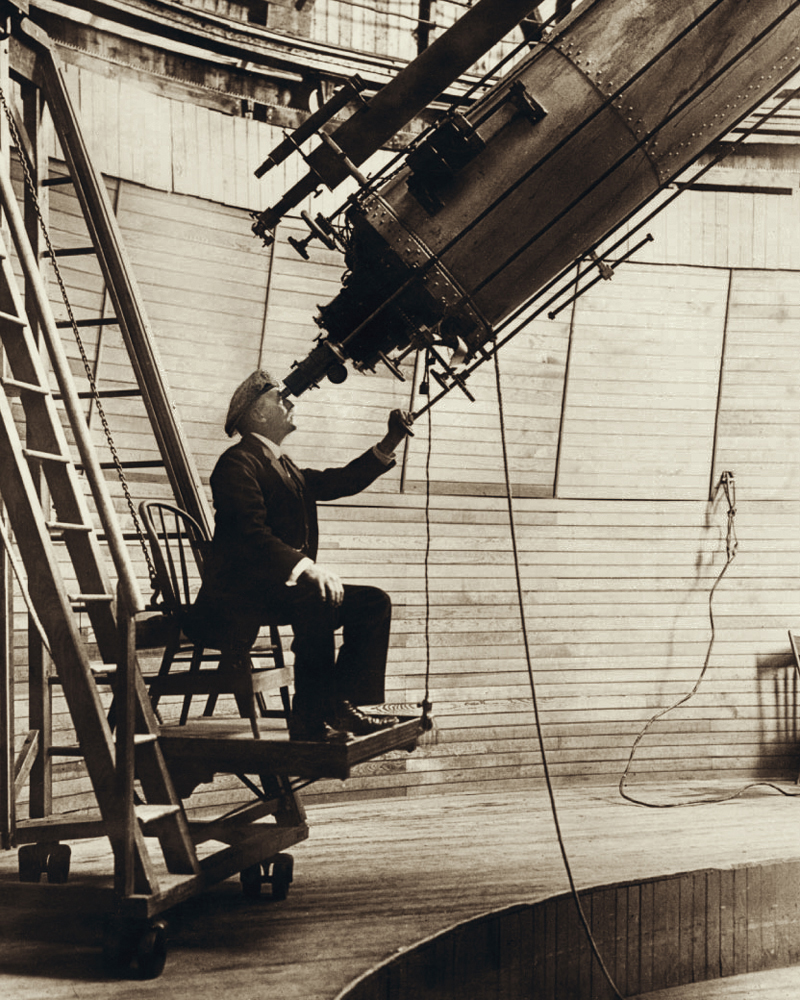
While modern science and astronomy have long since debunked the idea of Martian canals, Percival Lowell’s pioneering work helped to pave the way for the expansive field of astrobiology and the quest to find life beyond Earth. Looking back at his contributions, this was only the beginning. His legacy continues through the astronomers and staff of Lowell Observatory as they push the boundaries of knowledge, setting the stage for today’s cutting-edge research and discoveries.
Lowell Observatory continues to be at the forefront of exploring the vast cosmos, focusing on our solar system, exoplanetary systems, stellar astrophysics, and more. The planetary scientists at Lowell continue to carry forward the tradition of carefully studying the celestial bodies within the solar system, ranging from the radiating Sun to distant Kuiper Belt objects. This includes thorough studies of planets, moons, comets, meteors, and asteroids, providing valuable information about how they formed, their compositions, and their interactions.
Lowell Observatory astronomers are also helping answer one of humanity’s oldest questions, “Are we alone?”. Lowell astronomers use precise spectroscopy techniques to detect exoplanets and study conditions around their parent stars’ planet-forming regions. This effort demonstrates Lowell Observatory’s dedication to expanding the knowledge and understanding of astronomy. But it’s not just about research and discovery; sharing these discoveries with the world is equally vital to the mission of Lowell Observatory. Recognizing the value of making astronomical phenomena accessible to all, the observatory has embraced a dual mission of research and science education and communication, guaranteeing that everyone may enjoy the wonders of the night sky.
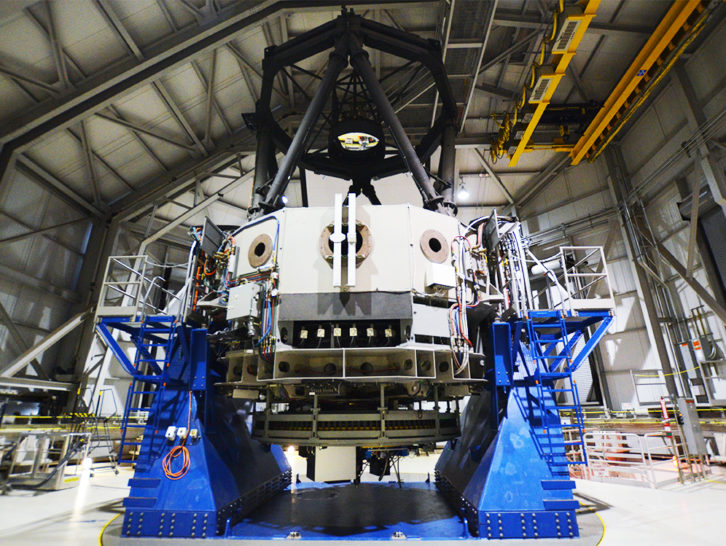
Lowell Observatory’s commitment to its mission shines brightly through its diverse daily programs designed to engage and educate visitors. From historical tours that dive into the Observatory’s rich history to interactive exhibits and historical sites, visitors are offered an experience to learn how astronomers unravel the mysteries of the cosmos from past to present. As the day transitions to night, the famously dark skies of Flagstaff allow the Observatory to offer exceptional opportunities for stargazing, including views through state-of-the-art telescopes at Lowell’s Giovale Open Deck Observatory. These initiatives highlight Lowell Observatory’s dedication to making scientific knowledge accessible to all, but this commitment goes even further. Lowell Observatory introduced the Lowell Observatory Camps for Kids (LOCKs) in 2012, relaunched as Orbits Curiosity Camp in 2023. This endeavor prepares the next generation of space scientists by fostering awe and wonder in young people, offering high-quality STEM learning opportunities, and setting the groundwork for future astronomers, astrophysicists, and space enthusiasts.
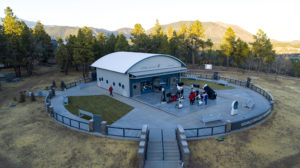
Last summer, Lowell’s Orbits Curiosity Camp was nothing short of a success, drawing around 200 curious young minds and igniting their passion for science. The younger campers in grades 1 through 6 explored the mysteries of the cosmos with hands-on science investigations with topics this year focusing on ‘Our Moon,’ ‘The Sun and Stars,’ and ‘The Electromagnetic Spectrum.’ Campers in 5th and 6th grade focused on the different ranges of the EM spectrum; by the end of the week, campers were building their 3D-printed radios that they used to tune into local stations. The Middle School Camp, designed for students entering grades 7 through 9, focused on the theme ‘Navigating the Night Sky.’ Campers explored the apparent motions of celestial objects, learned about Kepler’s first law of planetary motion, and navigated the sky using an alt-azimuth mounted telescope. They also studied constellations and their mythologies from various cultures, learning how stars were used historically to navigate around Earth. The camp’s blend of practical activities, expert guidance, and cultural insights deeply resonated with the campers and the community. This upcoming summer promises to be even more exhilarating, with camp themes like ‘The Solar System’ for grades 1-2, ‘The Milky Way and Galaxies’ for grades 3-4, ‘Life in the Universe’ for grades 5-6, and ‘Astronomical Instrumentation’ for middle school students. However, Lowell Observatory’s educational endeavors are set to expand even further, as the Orbits Curiosity programming is poised to evolve beyond just camps as we enter a new era at Lowell Observatory.
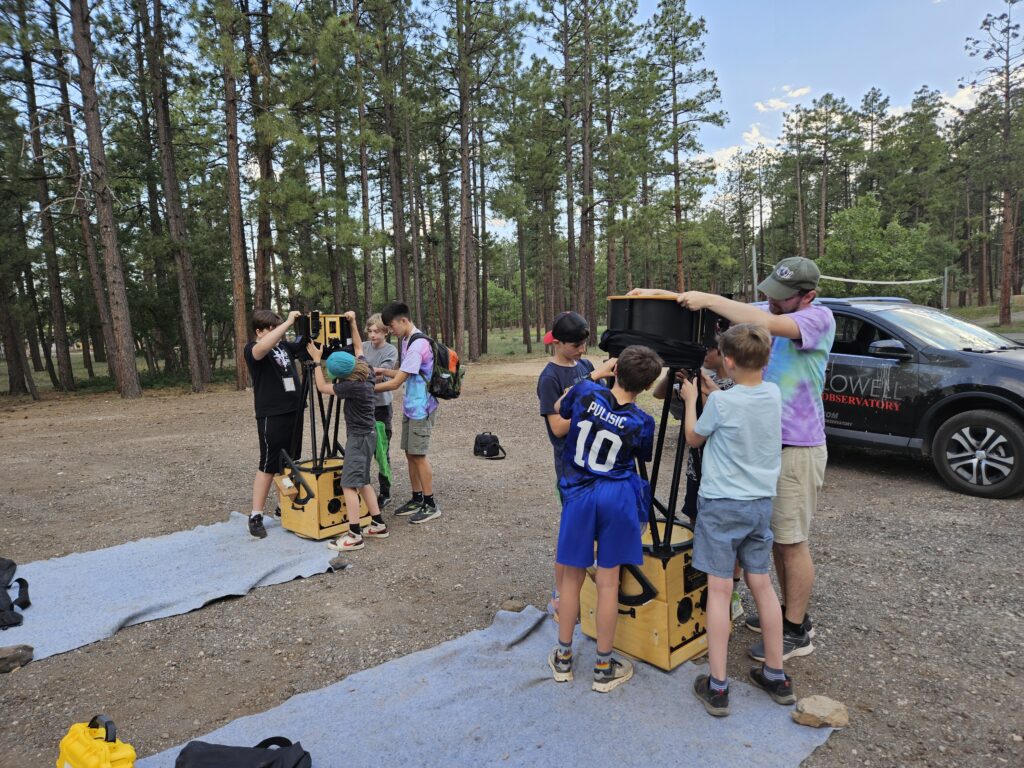
Lowell Observatory is gearing up for an ambitious leap into the future. This new era is ushered in by the upcoming opening of the Astronomy Discovery Center, which is expected to significantly improve the observatory’s educational outreach. This state-of-the-art 40,000-square-foot facility promises to redefine how visitors experience the universe’s wonders. One of its standout features is the Orbits Curiosity Zone, a dedicated space crafted especially for young minds. Here, children and students will get the chance to interact with exhibits, hands-on experiments, and engaging activities that will allow them to dive deeper into the mysteries of the universe, fostering a lifelong passion for space science. Another centerpiece of this initiative is the Dark Sky Planetarium, located on the center’s top floor. This natural planetarium will provide visitors with an immersive journey among the stars, constellations, and planets visible to the unaided eye by taking advantage of Flagstaff’s pristine dark skies. Beyond just observation, the center aims to foster deeper understanding and appreciation, with Lowell educators guiding guests through the vast expanse of the cosmos. The Astronomy Discovery Center embodies the observatory’s commitment to fusing cutting-edge research with transformative educational experiences, ensuring that everyone can continue to be awed by the mysteries of space.
Lowell Observatory has long been at the forefront of astronomy and space exploration, powered by a passion for discovery and understanding. The organization’s commitment to science communication makes the universe’s wonders accessible to all. This dedication is exemplified by the upcoming Astronomy Discovery Center, which promises life-changing educational opportunities for future generations.
